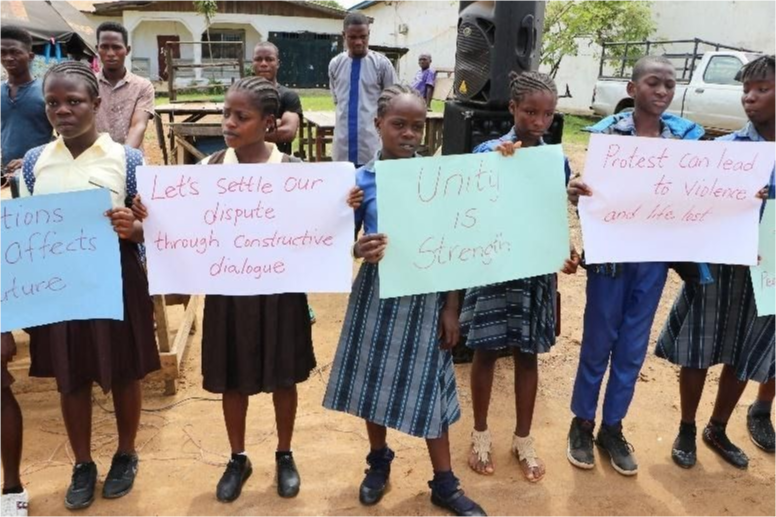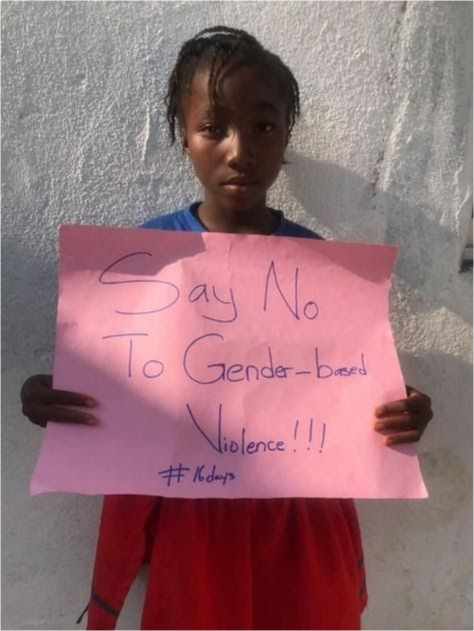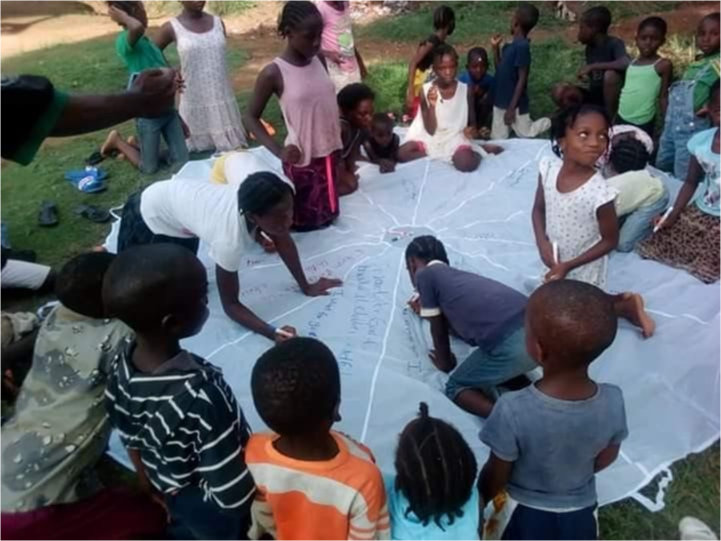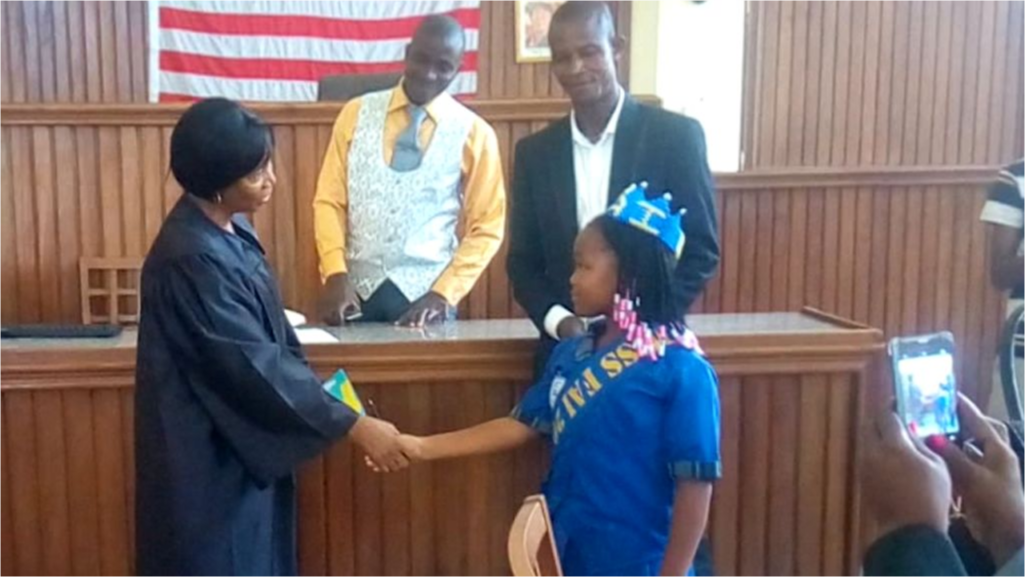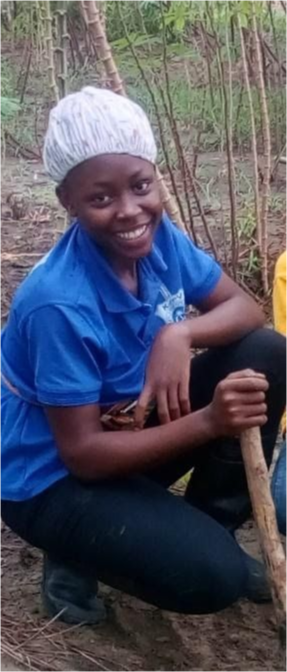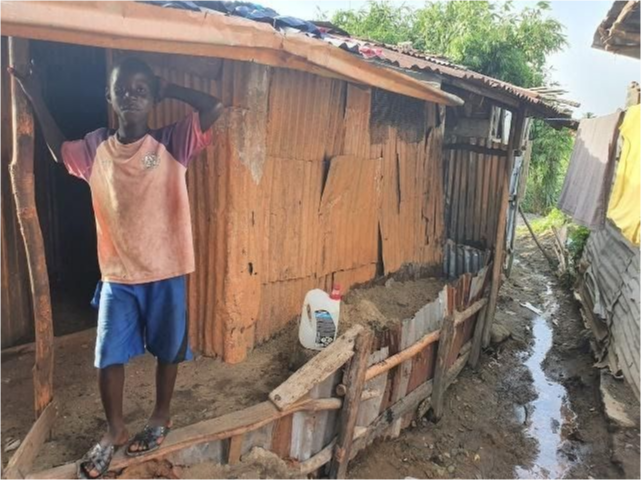Liberia
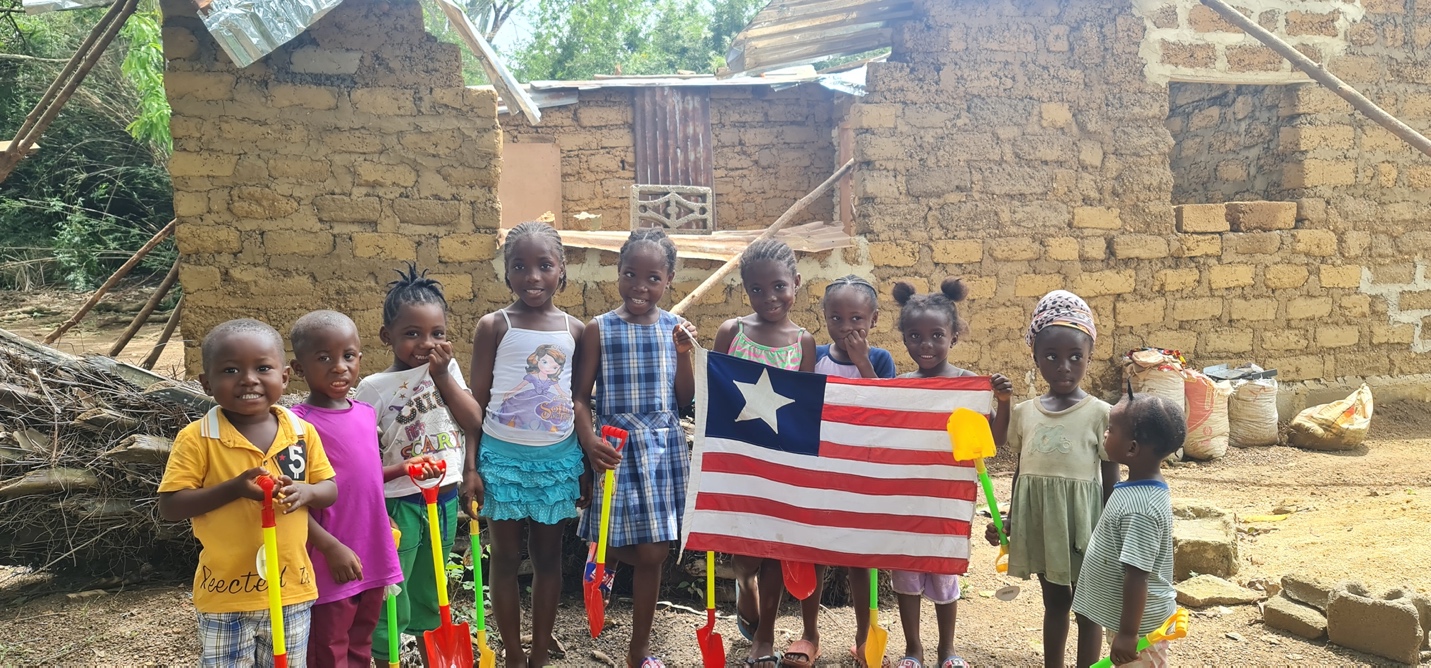
Out of the Storm
A spring storm devastated the Tunapu School in Liberia, destroying the building’s roof and forcing students to miss classes for nearly two weeks. In this small village, Tunapu is the only school—and the only hope for local children. Despite being out of class, the students visited the damaged school building daily to contribute to the rebuilding process with spades and pails, eager to get back to their Full-Circle Learning lessons.
Other Full-Circle Learning schools in nearby villages heard the news of Tunapu’s destruction. The students at the Millennium and CMA Schools, studying compassion and empathy as part of their curriculum, saw Tunapu’s tragedy as an opportunity to practice these habits-of-heart.
Students from these schools spoke to parents and teachers to prepare a celebration for the Tunapu students once the roof had been put back in place. Full-Circle Learning's humanitarian aid program came to the rescue, helping to replace the roof. When the work was done, the community of learners gathered to give flowers to the Tunapu students as they returned to their repaired school, welcoming them back to class with love.
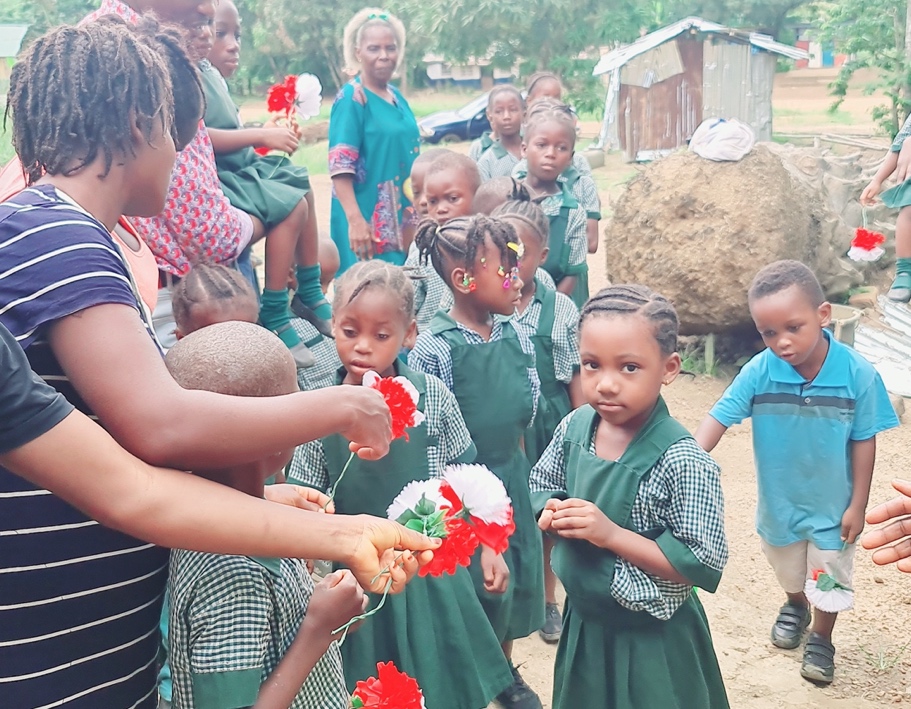
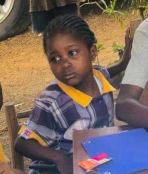
Bearing the Torch of Compassion
If people are innocent until proven guilty, how much more so a baby languishing alongside its mother in a dank prison, partitioned from the outside world?
So thought the learners at the Torchbearer School, who carried warmth and light to imprisoned infants. While researching government systems and social justice, they embarked on a six-month advocacy project to act on their awareness.
The prison mothers, teen victims of drug addiction without family support, lacked sufficient food, diapers, and counseling to provide for their newborns. After interviews with authorities and the prison’s maternity ward, the Torchbearers visited the prison, cuddling the babies, committing to their care, and bringing comfort and understanding to these isolated young souls, both mother and baby.
In doing so, the students of Liberia’s Montserrado County brought light to the lives of society’s most vulnerable.
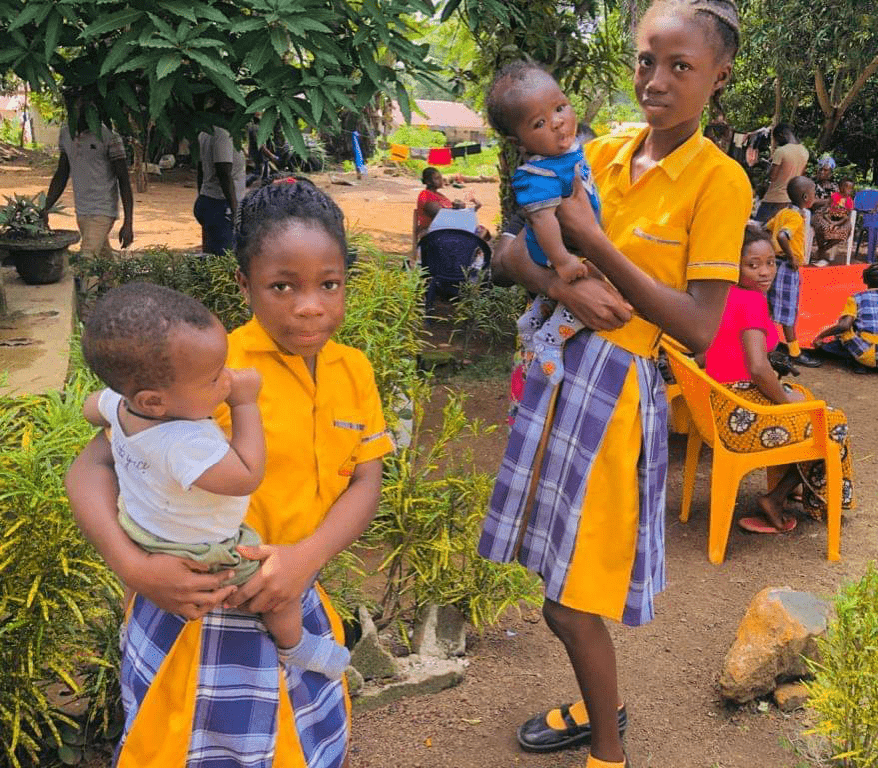
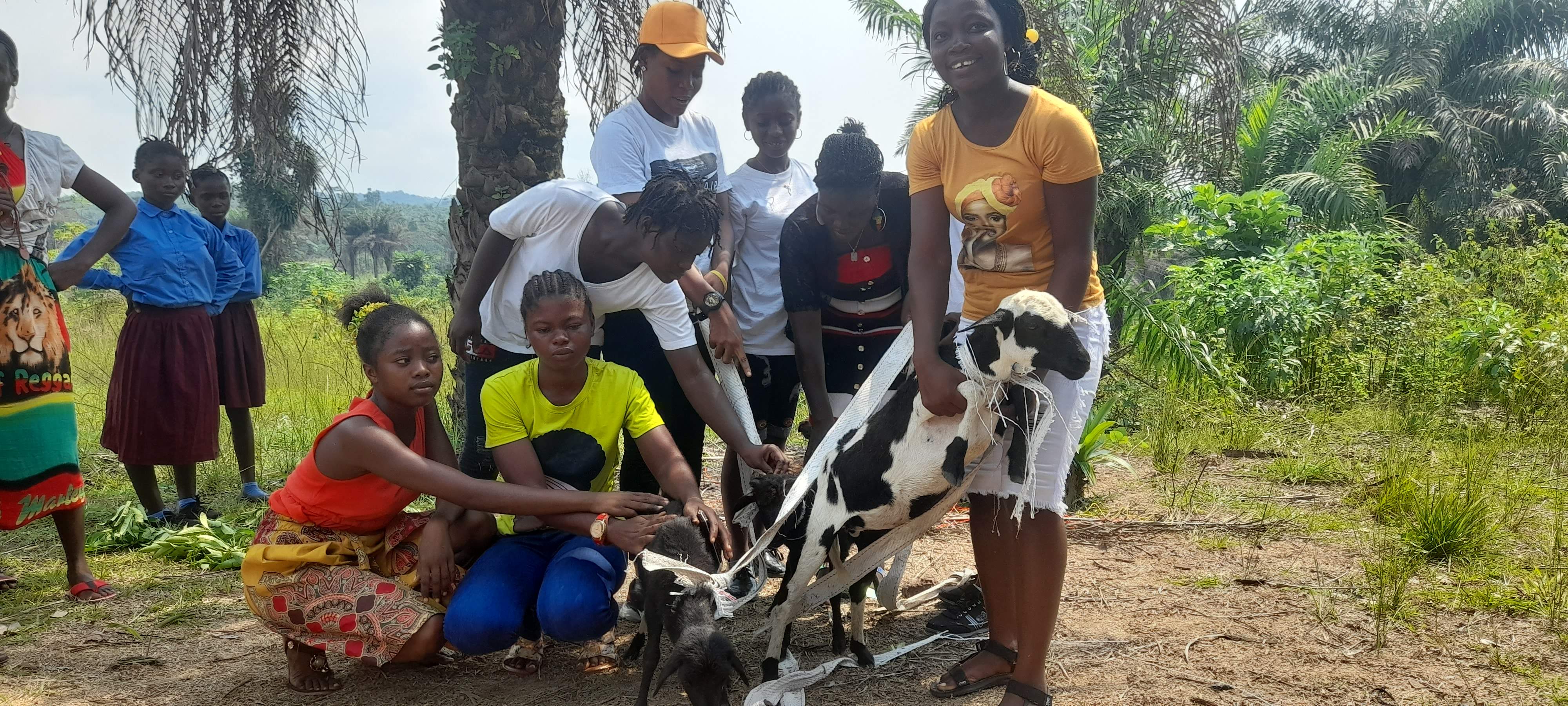
Altruism on the Farm
A team of girls cares for vulnerable people by caring for animals, too.
A Farmyard Full of Good Works
Liberia’s Girls United clubs use their imaginations to transform their communities. Hosted by Full-Circle Learning (FCL), Girls United chapters around the country have recently worked to combat poverty and disease, clean up polluted drinking water, and build a garden to celebrate peace. This spring, the girls in Bong County created a project that combines animal science, entrepreneurship, and altruism to nourish their community for many years to come.
The girls requested an FCL project grant to purchase 41 chickens and five sheep. Each girl cares for a chicken for three to four months, until the chickens hatch chicks of their own. The girls have done the math—by the end of the year, their 41 chickens will have produced 205 more.
Of these hens, most will be sold at market for just under $5 USD each. The profit will go to purchase food for 20 widowed and elderly community members and to buy school supplies for ten students who would otherwise be unable to afford their education. A few unsold chickens will serve as the mother hens for the next generation of chicks, allowing the girls to continue the project to bring food and resources to the community members who are most in need.
As for the sheep, the same logic applies. The five sheep will produce another ten offspring, and the funds from the sale of the sheep at market will go towards supporting those who need it most. The girls will hold on to a few sheep and use them to continue the project next year.
Over the course of their work, the girls will study marketing and other entrepreneurial skills, to ensure they get the best prices for the animals they’ve worked so hard to raise. As their stock of animals improves and grows with time, the girls will be able to help more people, creating years’ worth of positive change.
Help Full-Circle Learning fund tomorrow’s young leaders.
Please click below to donate today.
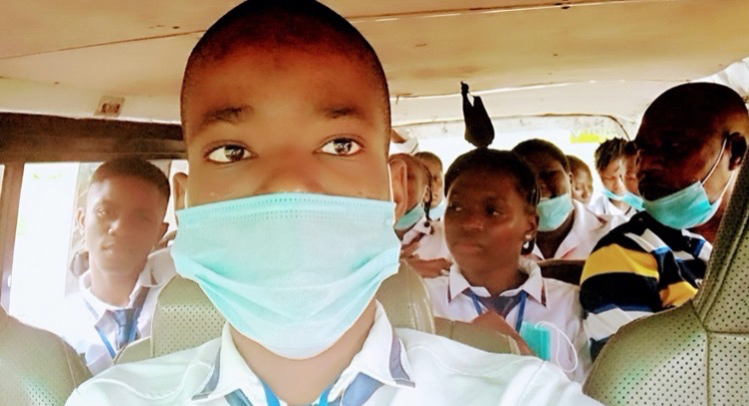
Students Halt a Killer in the Air
Young leaders across Africa are fighting malaria—and winning.
Exchanging Wisdom to End Disease
Across Africa each year, 215 million people suffer from malaria, according to the World Health Organization. In some regions, the death toll surpasses that of Covid-19. When malaria strikes a community, 67% of the dead are children—but Africa’s children also lead the campaign to make malaria a problem of the past.
Full-Circle Learning students realized that tackling any public health crisis begins with the habit-of-heart of awareness. Schools in Liberia, Nigeria, and Zambia currently work together to spread the awareness that can protect communities from malaria.
In Nigeria, Harvard International students traveled across the region to galvanize peers as health advocates in their effort to save lives. A team of student researchers learned from their visit to a local hospital and taught their new knowledge to their classmates for a half an hour daily. Via cell phone, they met with learning partners abroad. Inspired by this international exchange of wisdom, they next traveled to another town, Umutu, where they visited six schools and trained 2,700 children and 170 parents to act as health advocates. In the photo above, the students are on the road to make this change.
Meanwhile, the rainy season brought flooding to Liberia. Standing water bred new mosquitoes to carry the malaria parasite. At Ma Vonyee G. Dahn Memorial School, students toured a malaria research lab and a public health department to get the facts. They shared specially treated mosquito nets and information about treatment with families in 14 homes. Elderly and high-risk community members who lived near the school happily received the gifts. Other community members welcomed a public presentation (see photo below) which detailed the steps for mosquito eradication.
Zambia’s Gifteria School also undertook a malaria prevention project. Students, parents, and teachers worked together to clean up the local environment and drain standing pools where mosquitoes could breed. Two local orphanages were especially vulnerable, due to their location near a stream. The Gifteria students visited these orphanages and the surrounding community, mosquito-proofing the landscape and giving treated nets to those in greatest need.
By enhancing their projects through “wisdom exchanges,” each group of global learners accomplished more than they could have on their own. At present, the students continue their public health advocacy to improve the wellbeing of their human family.
Help FCL’s students slap out malaria.
Please click below to donate today.
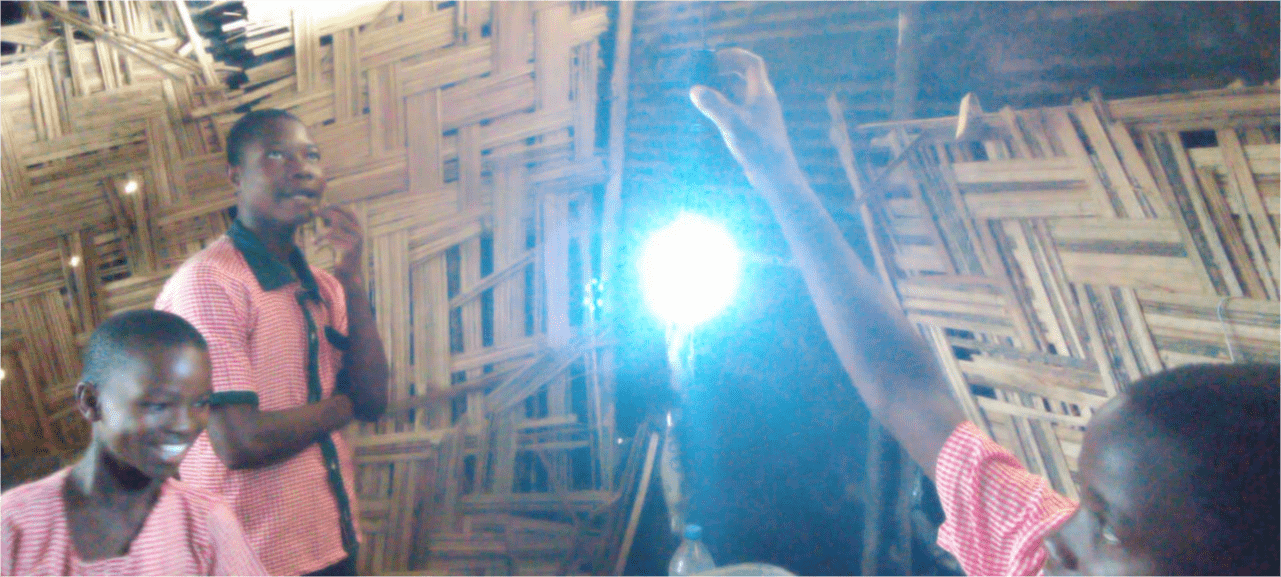
The Light of Hope
How your contributions helped students save a man’s life.
In the Liberian village of Blacktom, elderly citizens lived without electricity. The presence of dangerous animals, including snakes, meant they risked their lives every time they got out of bed in the night.
While exploring the habit-of-heart of open-mindedness, students at the Harvest Mission and Hill City schools recognized the struggles of their elders and vowed to help.
In a global wisdom exchange linking clean energy and the habit of compassion, the students first aimed to offer solar panels as affordable energy for the elders. Though they weren’t able to access this solar technology, they didn’t give up. The students learned how to wire and install battery-powered light strips, electrifying five local homes.
On the first night after the installation, one man stepped out of bed and found his feet inches from a black cobra—the largest cobra species. Thanks to the light in his home, he could see to get rid of the snake before it could harm him with its deadly fangs.
Thrilled at their project’s immediate impacts, the group of students went on to restore and chlorinate the water supply in seven abandoned wells in town. Through an extension grant, students are working to make the village’s new electrical systems solar and sustainable.
Now Blacktom’s elders have water and light. Our thanks to you for fostering this lifesaving, earth-preserving work with your donations.
Saving Lives on the Front Lines of Climate Change
How one outstanding student brought clean water to her town.
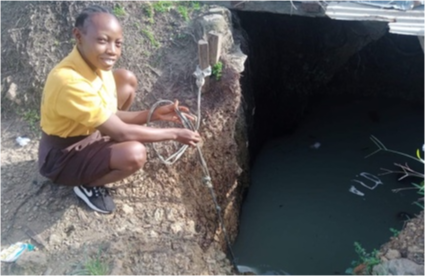
A Flood of Creativity
13-year-old Bendu Johnson is a powerhouse of creative altruism. Earlier this spring, she taught impoverished families in her town to feed and support themselves by catching crabs. As a member of the Girls United club, she’s been part of clean energy projects, demonstrations against gender-based violence, and even a meeting with a Nobel laureate, Madame Leymah Gbowee. NGO workers and teachers often visit Bendu to see what problem she’s planning to tackle next.
This month, the problem is one of too much water—and not enough to drink. The rainy season in Liberia has flooded villages across the country, with rainfall levels amplified due to global anthropogenic climate change. The floodwaters contaminate town wells, introducing mud and pathogens into the water used for cooking and drinking.
Unsafe water destroys the health and deepens the poverty of the most vulnerable people. Wealthier citizens can purchase purified water, but for low-income people, clean water costs too much. When children and elderly people come down with dysentery, treatment costs even more.
Enter Bendu. The Full-Circle Learning scholarship student initiated a community-wide effort to solve this growing public health problem. Using the habits-of-heart of conviction and creativity, Bendu resolved to teach her community in Paynesville how to purify water with recycled supplies available for free.
In the image below, she fills an empty rice bag with sand. When water passes through the sand and the fabric of the bag, many contaminants remain behind. The filtered water is safer to drink. Like many of FCL’s students, Bendu works hard to lead her community in adapting to the effects of the climate crisis.
Your contributions make Bendu’s education possible. Click to donate.
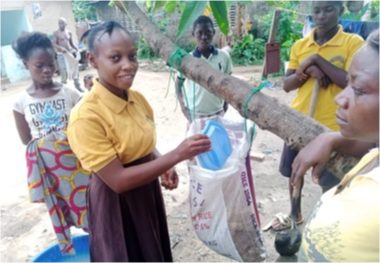
Message in a Bottle
How FCL’s young leaders are making a difference for World Oceans Day
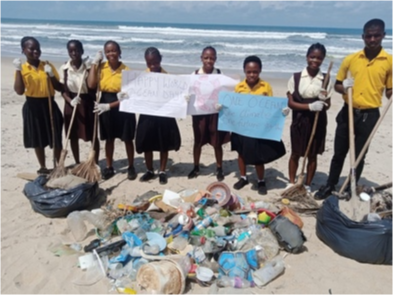
Cleaning Beaches, Opening Minds
Last month, someone in the UK tossed away an empty water bottle. This week, the Change Agents in Liberia intercepted it during their beach cleanup. For these young leaders, every discarded bottle holds a message in it: "One Ocean, One Climate, One Future."
Eight students from the GANDOMA and Korto schools organized a field trip to a key fishing port on the Atlantic coast. In many Liberian homes, fish is the main protein source, so these students know firsthand the importance of the health of the oceans for human health. To the students of the Climate Change Agents club, a beach covered in plastic is a sign of a planet in trouble.
The students commemorated the United Nations’ World Oceans Day by facing the global plastics crisis head-on, collecting a mountain of bottles and other refuse. They filled two enormous bags, recycling all they could.
The students also made homemade signs in support of ocean preservation. These signs opened the door for thoughtful conversations with other beachgoers about the many ways life on Earth depends on the oceans. Students were able to educate their community about the importance of keeping beaches and oceans clean and healthy.
Everyone loves a day at the beach, but the greatest joy comes from making a positive difference for the planet and the people on it. Your contributions fund education beyond the classroom, giving students the reward of creating broader change.
Thank you for your support for tomorrow’s leaders. Click to donate.
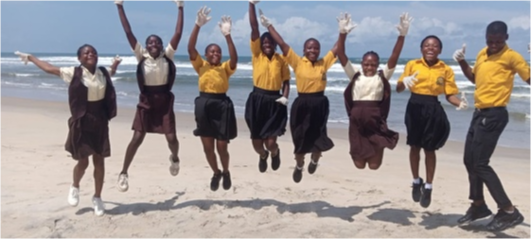
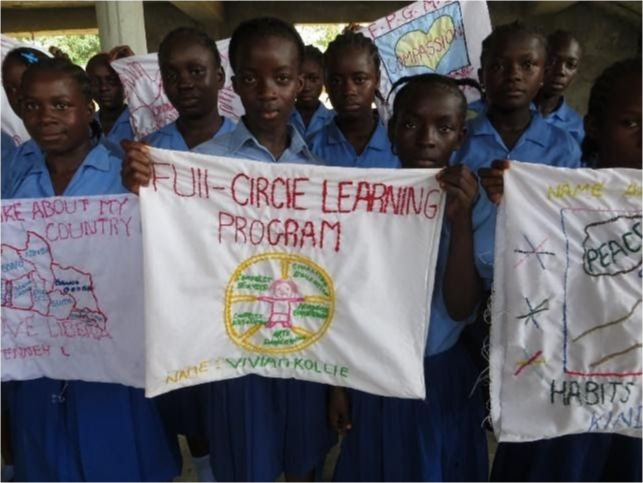
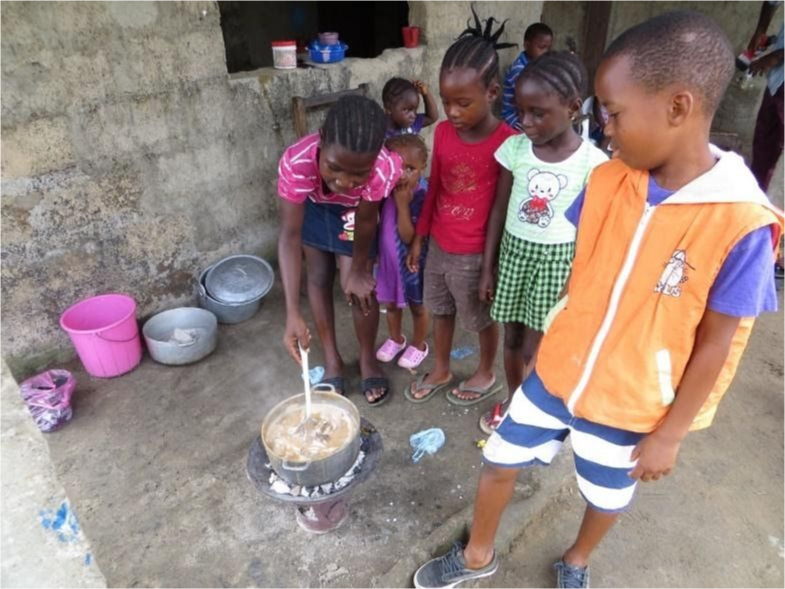
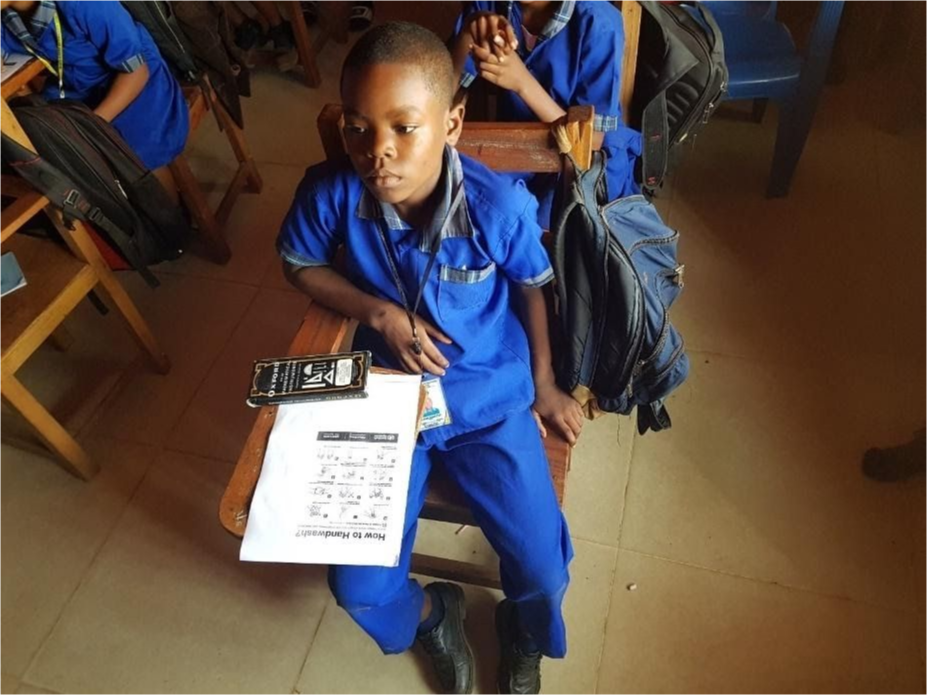
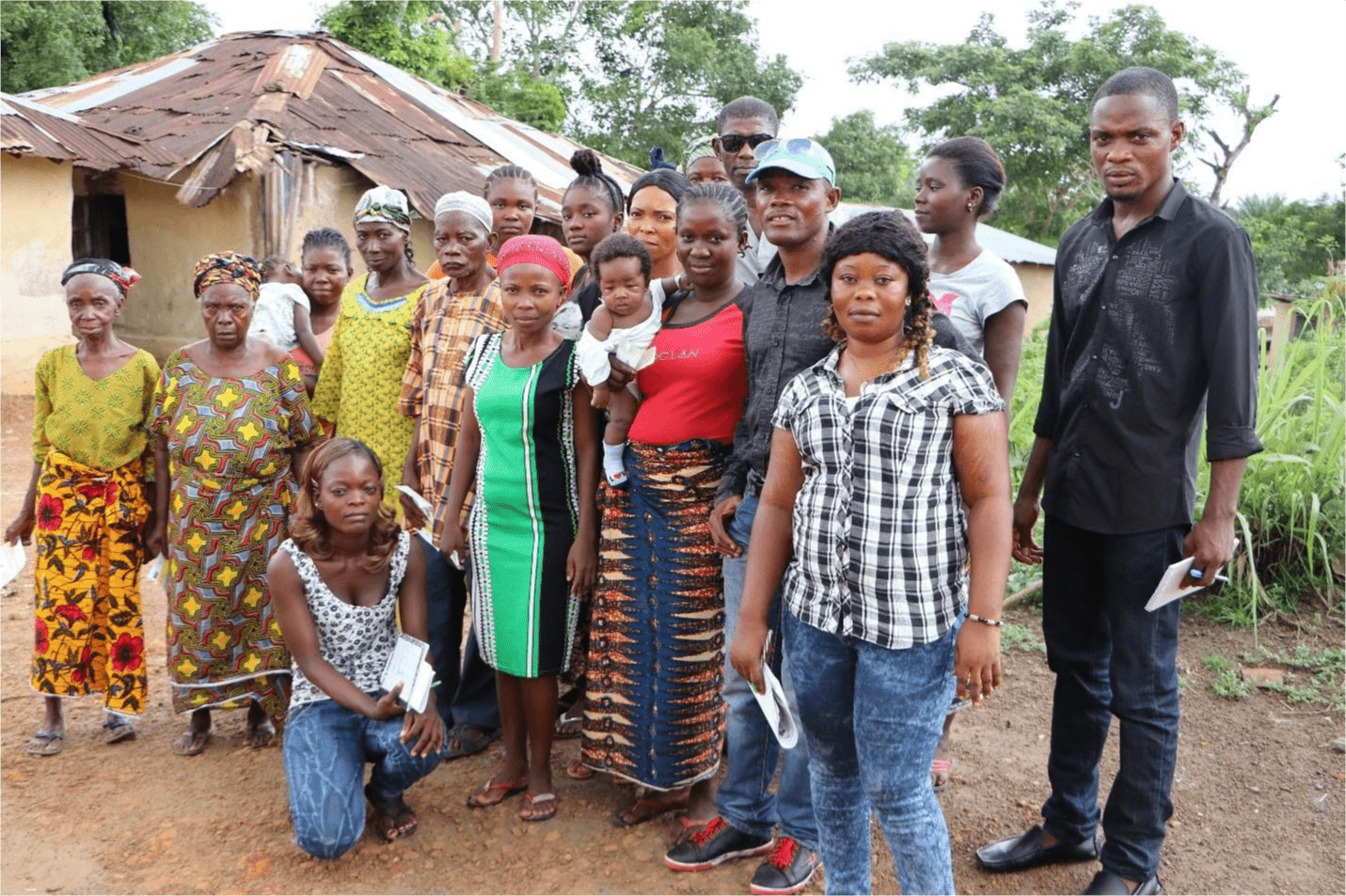
Full-Circle Learning Liberia hosted professional development training and capacity building for 475 schools between 2010 and 2020. During the2014 Ebola outbreak, requests surged as teachers realized the humanitarian impact they could have, based on the prevention efforts at 31 schools.
Exemplary school projects, as a result of these trainings, are too numerous to name. The photos here offer a glimpse.
Children convening in a mobile schoolduring school closures learned by doing.They had to spell the ingredients of hotpepper soup before gathering thoseingredients and putting them into a pot,which they delivered to neighbors forcomfort. They avoided approaching thecorpses that lay covered in the streets asthey courageously conducted theirservice.
As teachers delivered bleach and food, throughthe help of a Nevada County fundraisingconcert, students conducted hand-washingcampaigns and made “comfort pillowcase flags.”
Five years afterward, as Liberia still sufferedfrom a shortage of doctors and nurses, theFull-Circle Learning students became advocatesfor community health, learning skills they couldteach their parents.
In the ensuing years, projects ranged from literacy projects in which children taught adults, to a peace rally that students held to prevent civil war.
Girls United Clubs at Full-Circle Learning
schools conducted numerous projects, including participation with UN officials in the 16-Day Campaign againstGender Violence.
Girls also taught their community climate change awareness. Here they signed a parachute with their wishes and lifted it high, to represent the ozone layer.
In one Full-CircleLearning school, teachers immediately incorporated service-learning field trips within each learnin gunit. One fourth grade teacher taught his students about natural resources. When their parents complained that
“justice for the poor” was not a resource, he took them on a field trip to a court room. After the trial, the judge said, “Both the defendant and the victim were poor. Each had two free attorneys, the jury and myself toad minister a fair trial. Do you now think we have justice for the poor?” The class president delivered a statement to the judge, and the class sang for her and honored her for creating justice. They went home to give their parents a new perspective.
The coronavirus pandemic of 2020 brought months of distance learning, on foot and online. Liberia contributed to the creation of distance learning courses for its own country and beyond.
By 2020, through the EHG fund and other donors, FCL had established scholarships for ten students. They worked online and on the ground to apply the habit-of-heartEmpathy. Laura (left)
arranged to deliver produce from her school farm to the elderly, starving during the lockdown. Monlu’s community (right) received FCL food aid from FCL, to prevent starvations during school lockdowns.
In 2020, several schools received Exemplary Project grants. Each one used multiple skill sets to apply a habit-of-heart toward a sustainable development goal, such as food security, disease prevention, eldercare, innovative agriculture or a sustainable environment.
In these photos, students from several communities sprayed for pest control, taught sanitation, and performed demonstrations on the conflict bridge to promote community awareness of
infectious disease caused by pests.
At other schools, students grew and delivered food for the widows in the village or designed new techniques for farming. Academies and village schools designated to lead individual or multi-group projects included Korto, Grace International,United Christian Ministry, Redeemed Christian Ministry, and Faith Academy and Gandoma.
